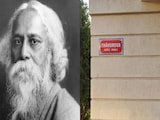With the possibility of Donald Trump returning to the White House, questions loom over how a second Trump administration might impact India-US relations. As a candidate, Trump has been clear that he intends to revamp US foreign policy, focusing on "America First" principles. Foreign Minister S Jaishankar recently said the US is very likely to become more isolationist regardless of who wins between Trump and Kamala Harris.
The camaraderie between Trump and PM Modi, which was on full display during high-profile events like "Howdy, Modi!" and "Namaste Trump," was a cornerstone of India-US relations during the billionaire's presidency.
For India, a major strategic partner for the US, the potential for a Trump 2.0 presidency poses both opportunities and challenges across several key dimensions: trade, immigration, military cooperation, and diplomacy.
India-US Trade Ties
Trump's foreign policy approach, explained in simple terms, is prioritising American interests and minimising entanglements in international agreements. During his first term, he exited or modified key international agreements, including the Paris Climate Accords and the Iran nuclear deal. In a second Trump term, such policies could continue to disrupt traditional US alliances and agreements, including with India.
US Election 2024 Live Updates | Donald Trump Ahead, Harris Close Behind, Republican Lead In Swing States
One area where a Trump presidency would likely impact India-US ties is trade. Last month, Trump alleged that imposes the highest tariffs on foreign products and vowed to introduce a reciprocal tax if elected to power.
"Perhaps the most important element of my plan to make America extraordinarily wealthy again is reciprocity. It's a word that's very important in my plan because we generally don't charge tariffs. I started that process, it was so great, with the vans and the small trucks, etc. We really don't charge. China will charge us a 200 per cent tariff. Brazil is a big charger. The biggest charger of all is India," Trump said. "India is a very big charger. We have a great relationship with India. I did. And especially the leader, Modi. He's a great leader. Great man. Really is a great man. He's brought it together. He's done a great job. But they probably charge as much."
The Trump administration's potential tariff policies could have repercussions for India's IT, pharmaceutical, and textiles sectors, all of which rely on the US market. On the flip side, Trump's continued push to decouple from China could open new avenues for India to position itself as a manufacturing hub, attracting US businesses that are aiming to diversify supply chains away from China.
Immigration: Impact On Indian Workforce
Trump's restrictive stance on immigration, especially the H-1B visa program, has historically impacted Indian professionals. His first administration attempted to increase wage requirements for foreign workers and impose additional restrictions, which created challenges for Indian IT professionals and technology firms. These measures, if reintroduced, could affect the Indian talent pool in the US and influence tech firms that rely on skilled Indian workers.
"For Trump, I think there will be some difficult negotiations over trade and immigration, although on many other issues, he has spoken about a very positive relationship with India and Prime Minister Narendra Modi," Mr Jaishankar told news agency PTI.
Military Ties and Defence Cooperation
Defence and military collaboration have been cornerstones of India-US relations in recent years. The landmark Initiative on Critical and Emerging Technology (iCET) and defence deals such as the GE-HAL agreement for manufacturing jet engines have been some of the highlights of India-US relations under Joe Biden's administration. Trump's stance toward NATO suggests he might adopt a similarly cautious approach toward military pacts, though India-US military cooperation may continue due to the shared goal of countering China's influence in the Indo-Pacific region.
Trump's last term also saw the elevation of the Quad - an alliance between the US, India, Japan, and Australia aimed at counterbalancing China. A renewed Trump administration could see further defence cooperation, with continued arms sales, technology transfers, and joint military exercises.
On the counterterrorism front, Trump's "Peace through Strength" approach might align with India's security objectives. India has long sought a firmer US stance on Pakistan, particularly in addressing terrorist activities along its borders.















